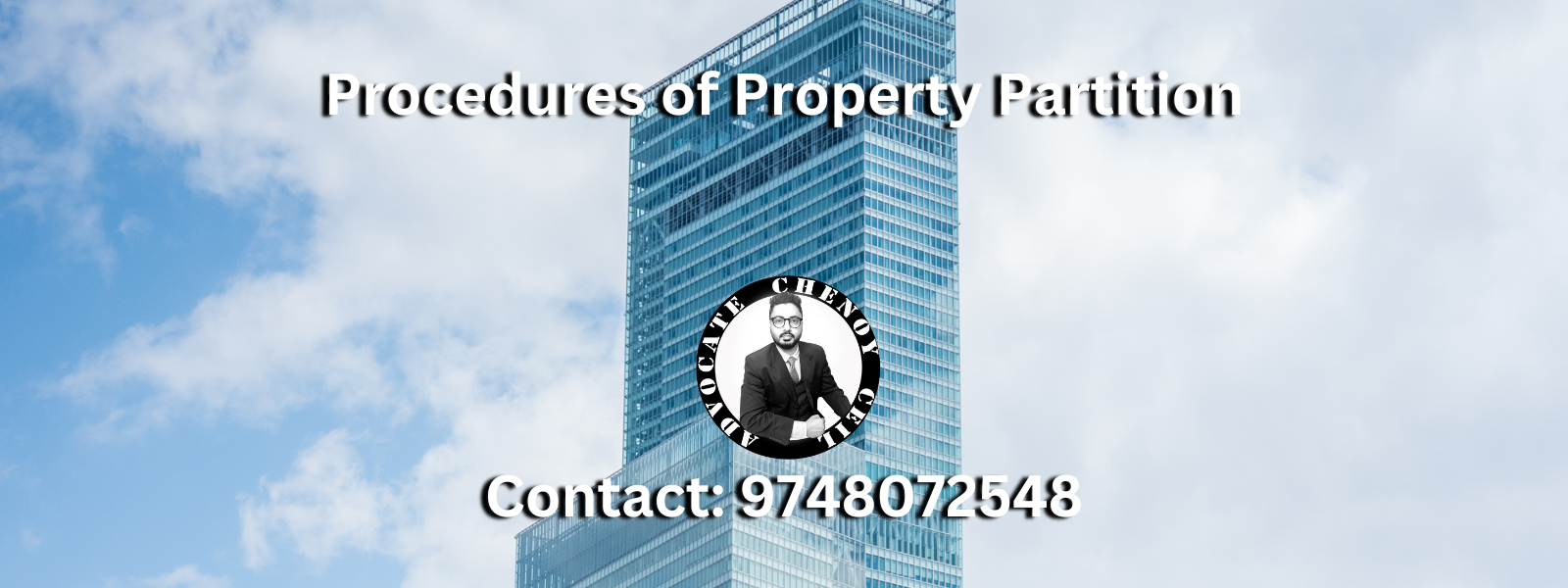A Partition Suit is a legal procedure to institute a suit against a property dispute in the Civil Court which is civil in nature.
What is a Partition Suit?
A partition suit is filed by any of the parties in a family. A Partition Deed is a legal document created by court’s order or through negotiations between the parties. A Partition Suit can be filed by any or all the owners of the property which is in dispute.
- Different ways of Partition of Property:
- Partition Deed – Partition occurs when all the owners mutually agree to make the partition of the property. When the owners reach to a conclusion after negotiations between them, they approach the Sub-registrar’s office to register their part of share of the property.
- Family Settlement- A Settlement agreement is made between the owners in the same way as the partition deed and it does not require any registration and stamping.
- Partition Suit – This is a legal procedure to divide the property between the owners. A suit is instituted by the parties before the Civil Court against a property dispute to partition the property.
- Law governing Partition
The Partition is governed by the below Acts:
- During partition of a Hindu Joint Family: The Hindu Succession Act, 1956
- During partition of any property which is owned jointly by either two or more than two co-owners: The Hindu Undivided Family [HUF] and The Hindu Partition Act of Property 1892.
- The Partition Act, 1893 – The Partition Act 1893 gives power to the court under Section 2 of the said Act to order sale instead of division in partition suit if the division seems to be inconvenient or unreasonable for the shareholders. The court may also make a decree to distribute part of the property and sale of the remainder.
3. Limitation Period for filing partition suit – The Limitation Act 1963 under Article 65 provides that a person can file a suit of partition within time period of 12 years.
Process/Procedure of filing a Partition Suit as follows –
- Filing of Plaint: A plaint is a legal document filed before the Civil Court where the Plaintiff mentions the facts of the dispute that has arisen because of the defendant relating to a property. The plaint should mention the following information:
- Name of the court
- Name, description and of address the parties
- Facts to determine the jurisdiction of the court
- Facts that constitute the cause of action
- Description of the property
- Amount of relief claimed
- Statement of value of the subject matter of the suit
- A declaration stating the Genuity of the complaint
- Vakalatnama/ Vakil Patra: Vakalatnama is a document which empowers the Advocate to act or represent a person engaged in a dispute. This document is also filed with the Vakalatnama. The Vakalatnama contains the following terms and conditions:
- The advocate shall not be held liable for any decision made by the court.
- The client must bear all the expenses and costs during the court proceedings.
- The advocate can retain all the documents until complete fees are paid.
- Court Fees: Court Fee must be paid with the plaint before the court and without proper court fee, the court can reject the pliant.
- Hearing: In the First hearing day if the court believes that there is merit in the suit, the court will order to serve a summon to the opposite parties. The plaintiff should pay the appropriate amount of procedural fee and copy of plaint within 7 days.
- Written Statement: After serving the plaint to the defendant, the defendant should appear before the court and file the Written Statement where he/she will accept and deny the allegations raised against him by the plaintiff in the plaint.
- Replication by the Plaintiff: Replication is a reply filed by the plaintiff against the written statement of the defendant denying all the allegations made by him. Once, the replication has been filed, the pleadings are considered to be complete.
- Filing of other documents: Now, both the parties to the suit are provided with an opportunity to file the original documents of their claims. Documents which are admitted by the parties are recorded by the court and photocopy of the same must be presented to the opposite party.
- Framing of Issues: In this step, the court frame the issues on the basis of which argument and examination of witnesses take place.
- List of Witnesses: The list of witnesses and parties should be presented before the court and court will arrange a date of final hearing.
- Final hearing: In the final hearing day, arguments take place between the parties and after analysing the facts of the suit, the court passes final order.
- Certified copy of Order: The court provides certified copies of the order which may be required for appeal or for other purpose.
The above article explains about Partition Suit and its relevant topics. It also mentions the process or procedure to file a partition suit.
